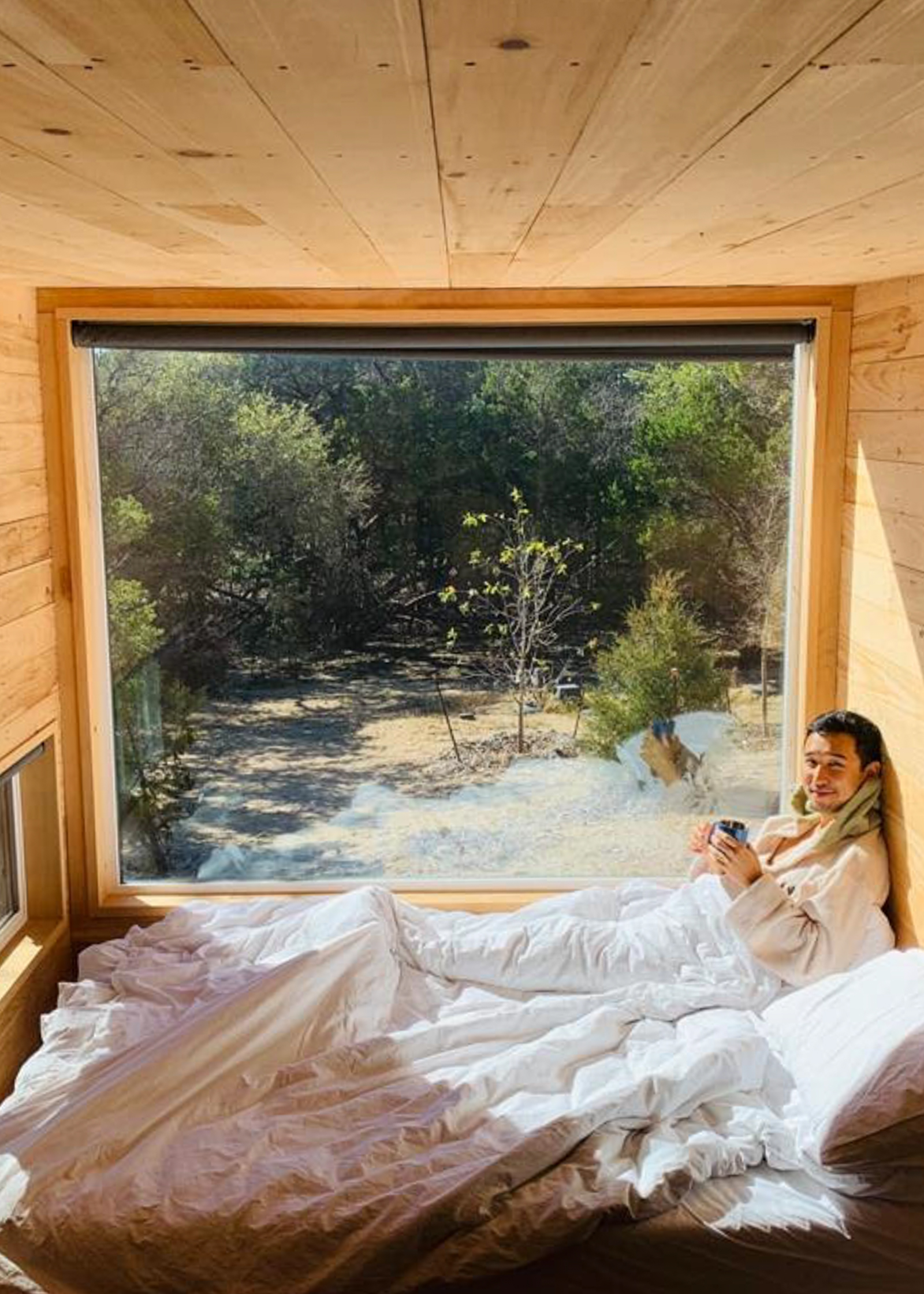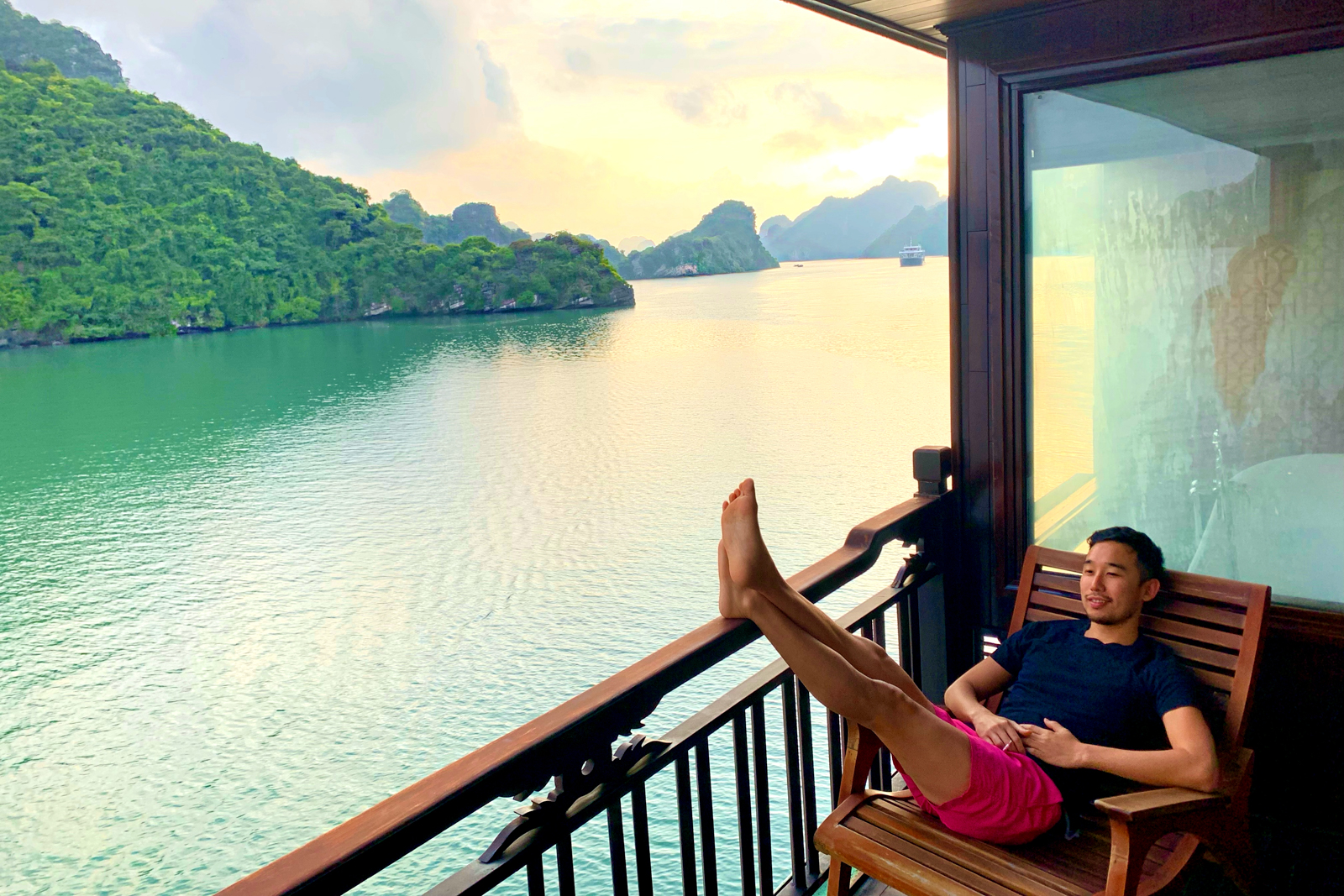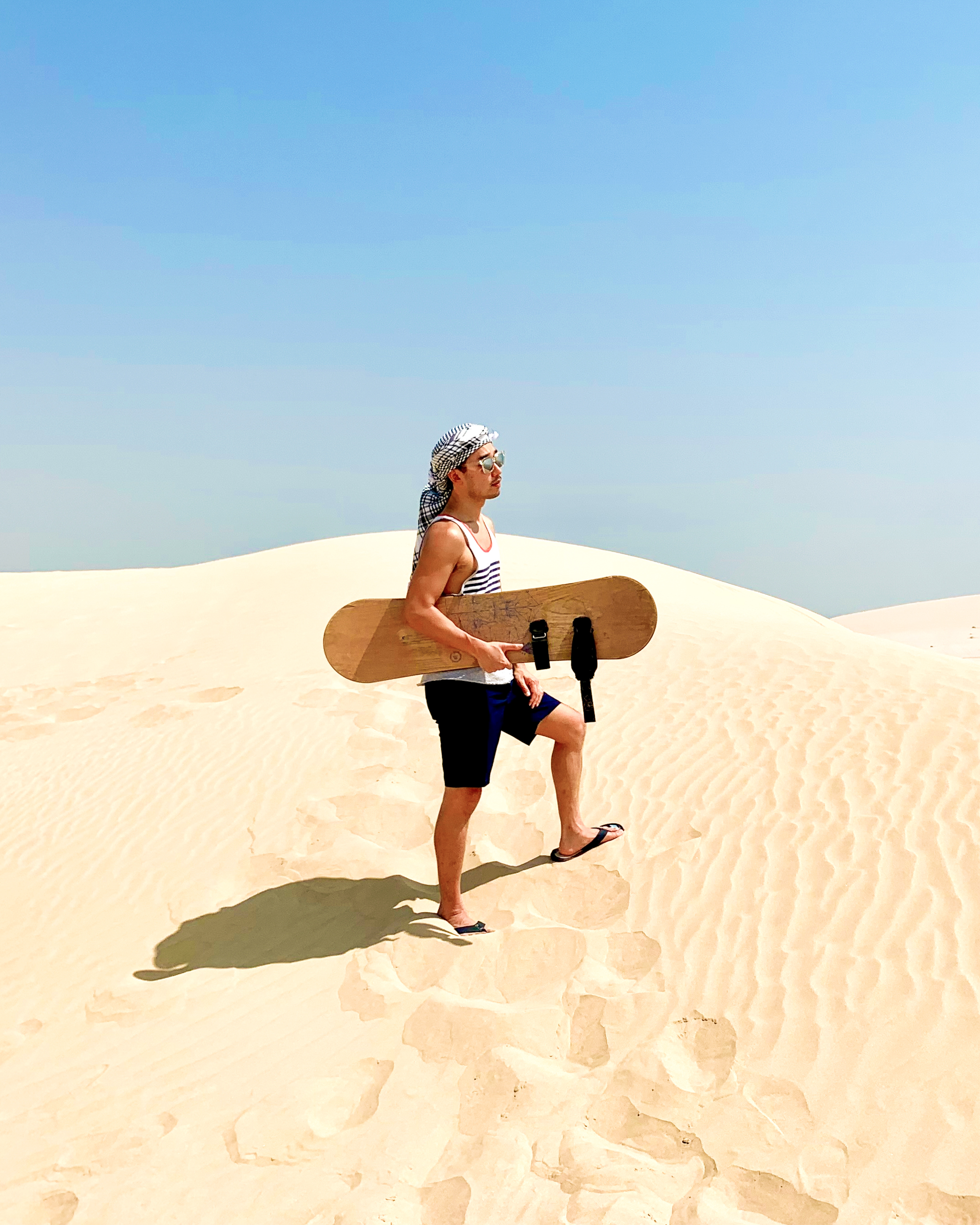Qatar Sand Dune Bashing. Courtesy of James Wong
Inside the Remote Working Life of a Vogue Travel Writer
Once a water cooler fantasy, the digital nomad lifestyle has quickly become commonplace worldwide, fueled by the pandemic which saw millions transition from in-house to temporarily remote to permanently remote; and that in turn gave way to the rise of the freelancer. As Vogue international’s travel correspondent, my job has always been remote. Editors assign work based on expertise and willingness to venture to destinations near and far. Being chained to a desk just isn’t an option. Whilst I’m well aware that this means of digital nomading veers on the more comfortable end of the spectrum, it’s not without downfalls. The idyllic perception of sun-kissed bodies typing away from pristine sand, coconut in hand, is a far cry from reality (for starters, the Wi-Fi’s never strong on the beach). Here’s what it’s actually like living and working full-time as a digital nomad.
Surprisingly, Being on the Road Can Actually Cost Less Than Staying at Home
Depending on the country, your overall expenses per month might fall below that back home. In Da Nang, I rented a luxurious two-bedroom condo with a rooftop pool for just $30 a night (1,633 PHP), one-quarter what I paid in the US. In Chiang Mai, I worked from CAMP, a free co-working space with the purchase of coffee—astounding considering my Manhattan desk cost $350 (19,061 PHP) monthly to rent. For Filipinos, there are currently 67 visa-free countries to choose from as a base including Malaysia, Indonesia, Laos, Peru, Thailand and Vietnam, all solid choices for pesos to stretch. Those seeking more expensive, visa-conditional destinations may choose to consider shorter stints, homestays and hostels; or part-time English-teaching visas, valid one year, which are particularly popular for Filipinos nomading in Japan.


On the Flip, You’ll Often Miss the Mark With Accommodation
With a new pad each month, the chances of a rental nightmare significantly increase. I’ve checked into a noisy store rooftop advertised on Airbnb as a “penthouse”; rocked up to an apartment at midnight only to find the electronic key didn’t work; and checked into a hotel with no soundproofing whatsoever, made worse by a party-loving clientele.
You Become Extremely Savvy, and Thus, More Employable
Studies find that recruiters see long-term travel as an asset. Getting out of our comfort zone forces us to adapt to new surroundings, negotiate out of sticky situations, diligently glide through documentation, and converse with a wide array of people. Every hour sees a challenge, something that no amount of groundhog day can teach. As a result, you’ll be confident to take on just about anything when, or if, you decide to jump back on the corporate ladder.
You’ll Crave Routine
The novelty of new destinations soon wears off. As in life, humans are desensitized to anything they’re exposed to continuously. I remember the first time I reviewed a hotel. My jaw hit the floor—I bounced room to room, video-calling mom, and basked in it for three days solid. Fast forward to 2022; I reviewed 300 hotels, staying overnight in more than 100, that year alone. Checking into an apartment I didn’t have to write about, cooking a healthy meal, and doing my own laundry, became something I craved. And after back-to-back exploring, going out was the last thing on my mind. There’s only so much adrenaline-pumping adventure you can or will want to endure.
But at the Same Time, Feel Incredibly Grateful For the Gap
Every time I come home and ask “What’s new?” my friends and family sigh, “Nothing”. There’s absolutely no need to feel FOMO on the road because more often than not, you’ll return after a year and find everything’s just as you left it. Sure, people get married, move jobs, and have babies, but essentially, you’re the one that’s reuniting with incredible stories to share (and for the record: I met someone and got married whilst away—you don’t have to forfeit relationships to digital nomad). I’m a firm believer in not waiting until it’s too late to make dreams come true. Blink and you could be retired with health restrictions.
Digital Nomading Doesn’t Necessarily Mean More Days Off
When you work for yourself, you discover some weeks there’s more work than you can handle, and others it’s tumbleweed. I’m lucky to receive a steady flow of assignments, but on quiet periods I’ll keep busy with pitches, itineraries, and the dreaded admin. I’m on email 365 days a year, albeit some days it’s just a glance. The point is that there’s no one to step in if you go off the grid, so to be a successful (solo) digital nomad it’s essential to be connected. Your reward? Flexibility and shorter working days.
Your Savings Will Fluctuate in the Beginning
With any new business, it helps to start with hefty savings, especially if operating outside your home country. Be sure to budget for unforeseen circumstances, such as medical bills, emergency exits, and work droughts. But rest assured, as you get more established in a chosen digital field, it gets easier, and the money trickles in more smoothly. Despite a turbulent pandemic when no travel business was left unscathed, things have already picked up and I’m finally saving with the goal of putting down some roots.

In the End, You’ll Have No Regrets
Exceptional circumstances aside, I’ve yet to meet someone who truly regretted quitting a desk job to travel and earn their keep. In a short time, I’ve lived and worked all over the globe, sharing much of it with loved ones—Tokyo, London, New York, Bali, and Jaco to name but a few. I’ve taken first class flights and jungle jeeps, trekked world wonders and helped on isolated farmland; interviewed Hollywood actors and street food chefs; covered fashion week then led a talk on sustainable tourism, and even authored a guidebook. None of these would have happened if I’d stayed in my old nine-to-five. We work to live, and if travel is your idea of living, then what are you waiting for?
- Vogue’s Insider Guide to Seoul
- The White Lotus Season 2 Villa Is Available To Book For A Stay On Airbnb
- Outlander: Equestrian Katrina Holigores Explores Mongolia
- 12 Underrated Wine Regions to Visit According to Experts



